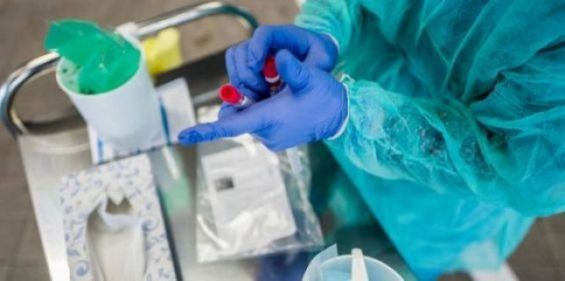Mohamed, 52, contracted the new coronavirus, as did his elderly mother. A Moroccan living in Italy, he tested positive in Morocco quite early on, thanks to a lung scan that he decided to perform as a precautionary measure. «Being already diabetic, I decided to undergo this test following a cough. The radiologists confirmed to me that I had just been infected, which allowed me to start treatment immediately thereafter», he told Yabiladi, from his home where he is now recovering with his convalescing mother.
But Mohamed's journey to seek treatment was no easy task. It all started in Casablanca, where he went with his mother to the Al Maghrib clinic, where his bank account began to bleed.
Payment by check requested en masse
«To be admitted, I had to make a down payment of 50,000 Dhs for myself alone and nearly 64,000 Dhs more for my mother. The care services are billed subsequently, knowing that we spent 10 to 11 days in the clinic», he told Yabiladi.
Mohamed explained that he felt «completely abandoned» while at the health facility, especially after the resuscitator who was following his case would have contracted Covid-19 in turn. «Since that day, no doctor had come to see us, only nurses came to perform the necessary injections», he lamented. He explained that he was «put on oxygen 24 hours a day, whereas this was only necessary at the beginning and it was even dangerous to remain subjected to it, if the breathing difficulties disappeared», according to him.
Mohamed's hardship continued until the day of his departure, as the clinic would have refused to provide him with the treatment bills necessary to his social security reimbursement request. «It was only after the intervention of another patient, who had come to pay previous fees, that I was finally able to obtain them», he stressed, deploring that «the prices are not subjected to any regulation».
Regarding the conditions and costs of healthcare for patients with Covid-19, the Al Maghrib clinic only declared to Yabiladi that «the Covid service is full at the moment» and that the facility had «no information to provide».
After this ordeal, Mohamed believes he was «bled dry». He simply indicated that he was «entrusting [himself] to God, who will know how to best do justice». «I prefer to focus on my health and that of my mother because that is what matters most to me right now», he said.
A patient with Covid-19 who died in opaque circumstances
Hind, the niece of a Moroccan patient living in France, told Yabiladi that she saw her aunt die at the Amal Rajae clinic in Rabat. The healthcare center would have declared her deceased in a manner that was «cold and in front of everyone, in the hall of the establishment». All in all, the relatives of her late aunt would have had to pay 84,000 Dhs, albeit including «a small discount obtained through the intervention of acquaintances». «We realized that it was a clinic that everyone was complaining about, including the surrounding residents», Sakina, the deceased's daughter, explained.
«On Sunday, the day she died, we were told her condition was improving, then at 6:00 pm she was not well, before staff confirmed her death. However, that very morning we heard a doctor say that he had 'two leavers' that day and we recovered, in addition to the remains of a second patient, my mother’s body at the end of the day».
Relatives also question the diagnosis and the lack of information provided. «We were told that she was having a pulmonary embolism, which is impossible with anti-coagulants, according to her attending physician in France. We were then told that she had suffered cardiac arrest», said the aggrieved daughter. «Even in the obituary, no mention of Covid-19 appears», Hind, the niece claimed.
«There is only the name, the date of birth and the date of passing. We therefore thought that death occurred following a cardiac arrest. It is actually the document I delivered to the funeral service that mentioned the presence of the virus, and that was confirmed to us by a doctor when we were thinking about burying her in her hometown».
«I was alone doing all the paperwork for my aunt, from the required scanner, the ambulance services, the payment of fees and the follow-up, then the procedures following her death, while I had myself tested positive for Covid-19 and I was confined in my home in Temara. When I could not find transportation means or get travel permits in time, I would walk 10 kilometers under the blazing sun to get to the clinic», Hind told Yabiladi.
Hind would have had to pay checks to the clinic, although the patient «had international insurance with full coverage». According to the deceased’s niece, «the staff didn't want to know anything and said they had nothing to do with insurance, and that to get the bills, you had to pay straightaway».
Forced to pay for her aunt’s healthcare, she also deplored that «the prices practiced do not obey any pricing scheme established by the regulator». «At its own discretion, this clinic requires a down payment of 47,000 Dhs to attend the patients, others require 37,000 Dhs, some require 50,000 Dhs or even 60,000 Dhs, depending on the patient's state of health», she said. Contacted by Yabiladi, the Amal Rajae clinic in Rabat confirmed that the sum of 47,000 Dhs was required to provide healthcare to patients afflicted with the novel coronavirus.
A trauma for families
«The sum is to pay for a package for the patient’s first week of hospitalization. It can be reviewed depending on the evolution of their state of health», the establishment explained. As for the granting of death notifications, the clinic’s representatives avoided the question : «in these circumstances, we try to make it easier for the relatives of the deceased».
Yet according to Hind, some care in the clinic is also provided without informing the families. «The medical staff, for example, did not tell us beforehand that my aunt was going to be put on respiratory assistance. This made me question the circumstances of her undeclared death, especially since we were not authorized to talk to her but only to see her from afar».
«We had just organized a funeral for my uncle (brother of the deceased), and my aunt came from France for it. Now we have buried her too. Her last wishes were that she rest near her brother, but as she was a Covid patient, we had to bury her in Rabat».
The healthcare experience revealed a traumatic one for the niece of the deceased. Despite her infection, she physically and financially exhausted herself to ensure the best care for her aunt, yet, «in vain» according to her. «If I still had days off, I must admit that my only wish would have been to isolate myself far from the city, far from the noise of ambulance sirens, somewhere I would not see any funeral transportation services, as I can no longer bear the sight of these services that have bled us financially», the dismayed niece lamented.
This article was published with the support of Google News Initiative




 chargement...
chargement...










